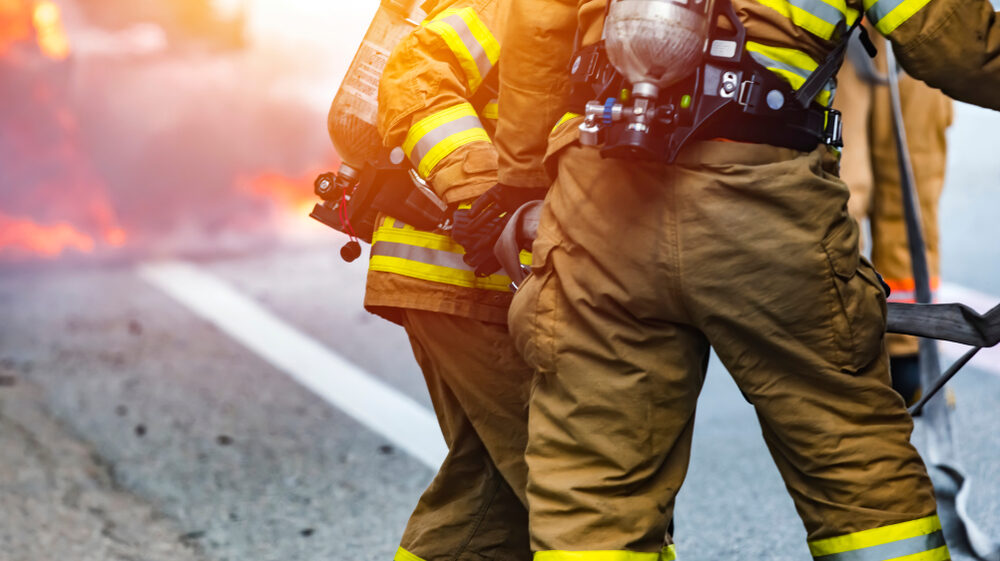Emergency safety inspections ordered after South Korean battery plant fire
- June 25, 2024
- 10:10 am


Iain Hoey
Share this content
Authorities launch nationwide inspections following deadly battery plant fire
South Korea’s central and regional governments have initiated emergency safety inspections of battery manufacturing facilities across the country.
This move comes in response to a recent catastrophic fire at a battery cell plant in Hwaseong, Gyeonggi, which resulted in the deaths of 23 workers, primarily Chinese nationals.
The fire, which occurred on Monday, originated at a factory operated by Aricell, a Kosdaq-listed lithium battery manufacturer.
The Ministry of Trade, Industry and Energy began inspections at Vitzrocell, South Korea’s largest producer of single-use lithium batteries, located in Dangjin, South Chungcheong.
The inspections will expand to include other lithium battery manufacturers and operators of energy storage systems.
City governments in Hwaseong, Gwangju, and Busan have also commenced their own inspections of local battery manufacturers.
Aricell CEO issues public apology
Following the fire, Aricell CEO Park Soon-kwan apologised for the incident and expressed condolences to the victims and their families.
Park stated: “We will be conscientiously taking part in the investigation by authorities and will do our best to determine the cause of the accident and to take measures to prevent a repeat of such an accident.”
Park noted that the company had adhered to all required safety procedures and training.
However, many of the 103 workers present at the time of the fire were temporary contract workers.
The fire, which began in an area storing lithium batteries, produced thick smoke that quickly spread, causing many workers to lose consciousness and succumb rapidly.
The blaze has highlighted ongoing safety concerns in South Korea’s industrial sector.
Prime Minister Han Duck-soo has called for urgent safety inspections and immediate measures to prevent future accidents.
A joint investigation by the National Forensic Service, police, and the fire department is currently underway.
Investigation into the fire and safety practices
Forensic and other experts are examining the charred remains of the factory to determine the cause of the fire, which is one of the deadliest industrial accidents in South Korea in recent years.
The fire broke out on the second floor of the factory, where security footage detected sparks near the lithium battery storage area.
The factory employed over 100 workers, many of whom were migrant labourers from China and Southeast Asia, performing hazardous and low-wage jobs.
The incident has drawn attention to the safety and working conditions of these workers.
DNA samples are being collected from the deceased to assist in identifying the victims, with 18 confirmed to be Chinese nationals, two South Korean, and one Laotian.
In response to the tragedy, President Yoon Suk Yeol has ordered officials to implement measures to address battery-related fire risks.
A team of more than 50 fire officers, assisted by rescue dogs, is continuing the search for any additional victims or evidence within the factory.
Government and company response to the tragedy
Prime Minister Han Duck-soo has instructed government officials to provide support to the bereaved families, addressing funeral and compensation matters.
The government will also investigate potential safety violations and the adequacy of safety training provided to the workers.
Aricell, established in 2020, manufactures lithium primary batteries and supplies parts to major companies like Samsung SDI.
Despite adhering to safety protocols, the company faced a 2.6 billion won operating loss last year and has accumulated significant debt.
Shares of S-Connect, the majority owner of Aricell, experienced a sharp decline following the news of the fire.
In a public statement, Park Soon-kwan committed to assisting affected families and cooperating fully with government investigations.
The company faces scrutiny over its safety practices and the conditions for its temporary and migrant workforce.

